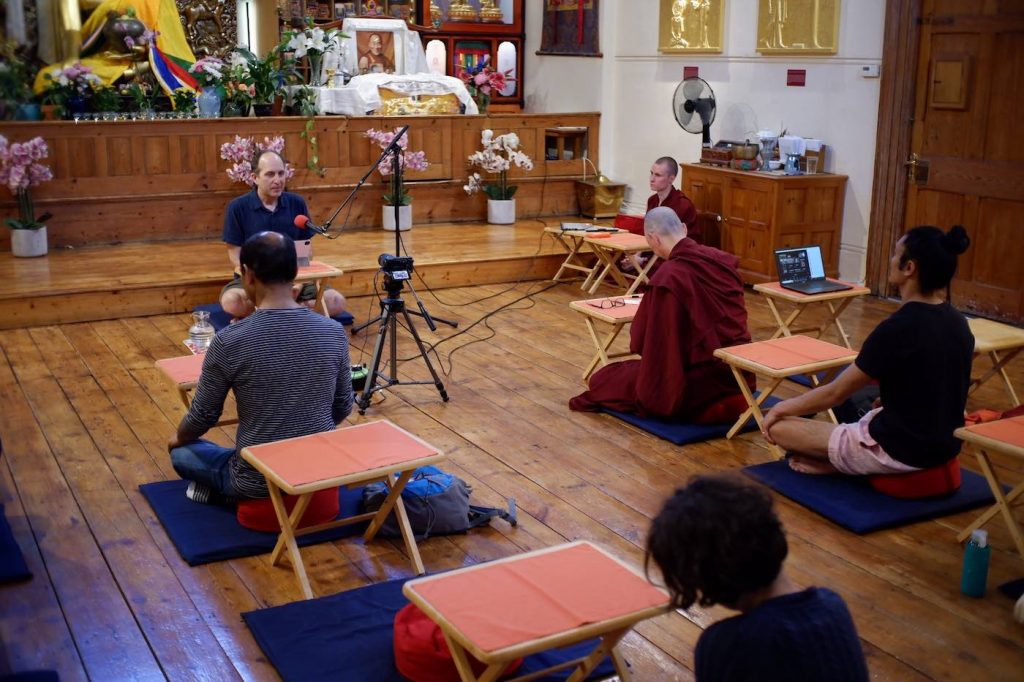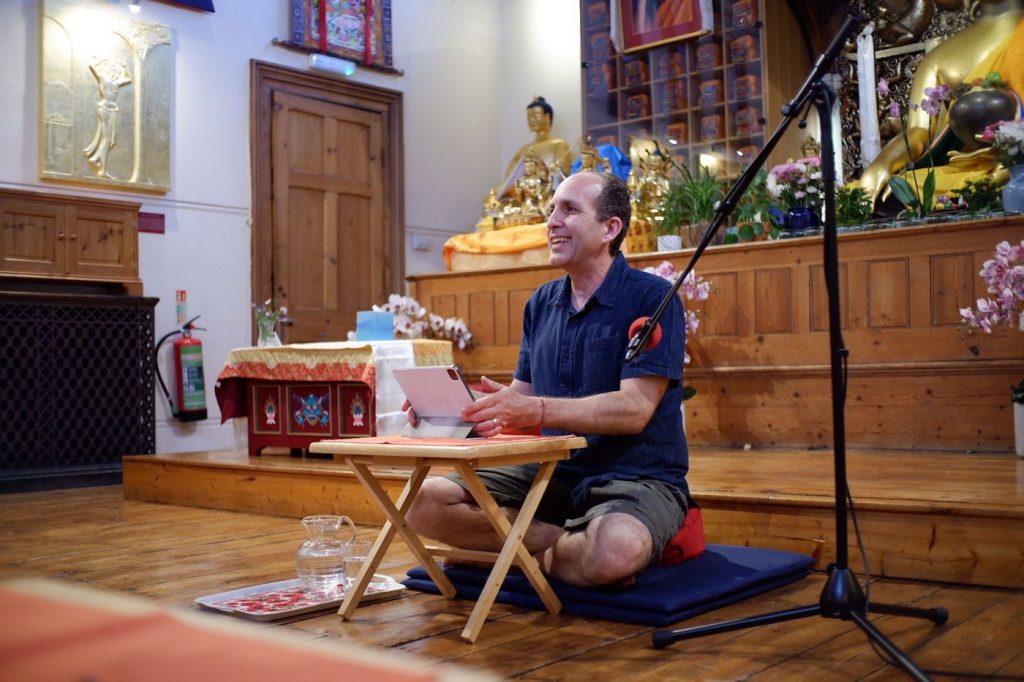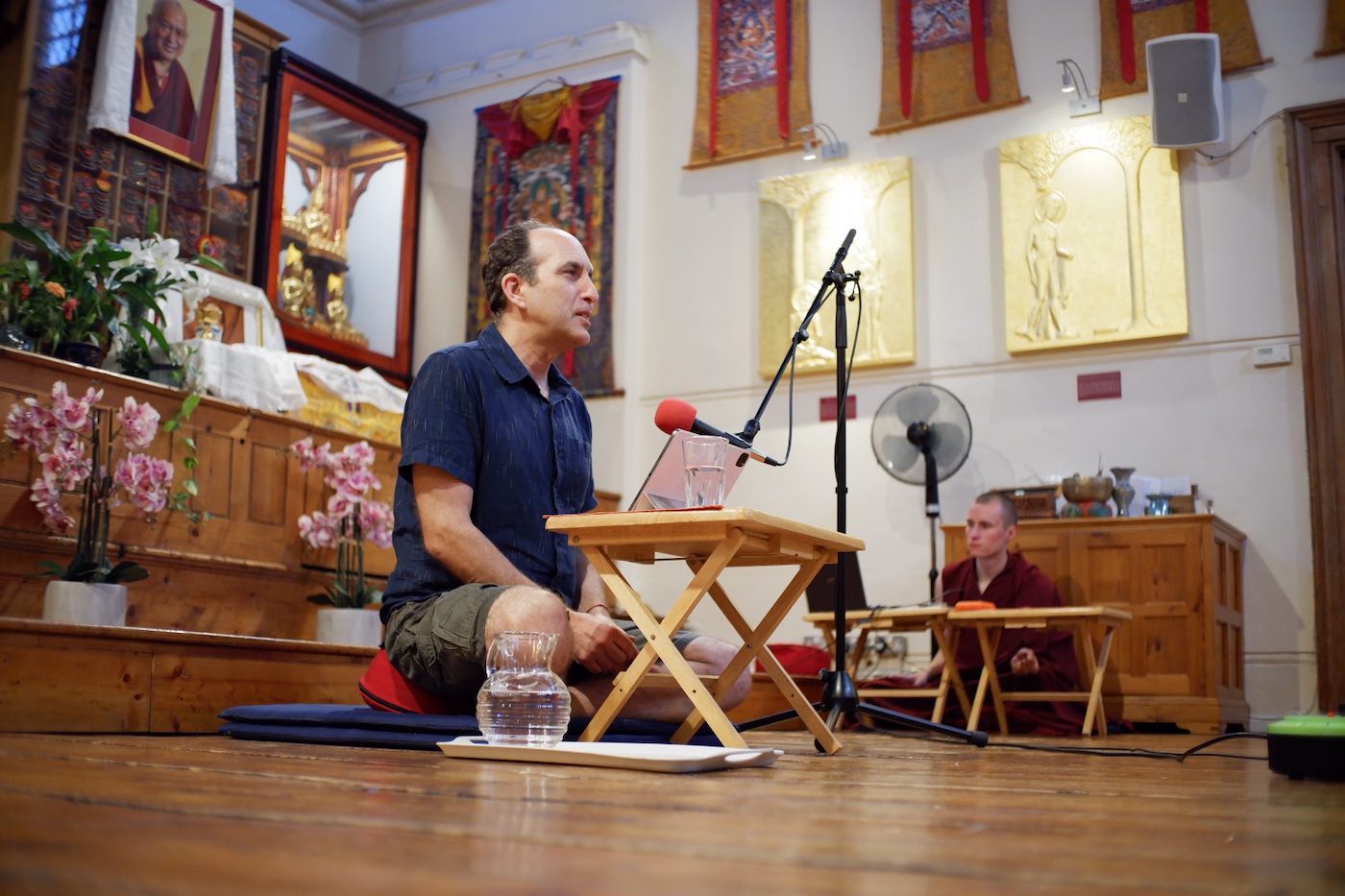The First Event of Its Kind
On June 14, Jamyang Buddhist Centre London hosted the first live event for Science and Wisdom LIVE. We were fortunate to be joined by Scott Snibbe, the founder of A Skeptic’s Path to Enlightenment. Scott gave a talk with a series of meditations throughout exploring the mind and its nature. Below you’ll find a recording, transcript and article about the talk.
We recommend finding a nice calm space for watching the talk, where you can comfortably follow Scott’s meditations and contemplations. We hope you enjoy it as much as we did!
Watch the Recording
Read the Transcript
And if you prefer reading the talk, you can view a full transcript here.
Exploring the Buddhist Models of Mind
Scott started this insightful discourse on ‘What is Mind?‘ by exploring the significance of Buddhism’s models of the mind. By elaborating on five ever-present mental factors – contact, perception, feeling, attention, and urge – he presented the foundation of the Buddhist understanding of the mind. The talk was cleverly interwoven with short meditations on the nature of mind to give us a practical experience of the mind.
The Experience of Meditating on the Mind
When asked, “What is Mind?”, Scott believes meditation provides a key insight into this. He shared his personal experiences, from his first rather unsuccessful first meditation attempt to a profound meditative journey which led him to a state of “rest in a vast luminous space of awareness.”
Scott reflects on this transformation, stating, “somehow guided by venerable Rene’s instructions, it was like a door opened up into another dimension. You know, it was, I felt myself at rest in a vast luminous space of awareness. This overwhelming feeling of peace and joy. And this expansive sense of being that I really didn’t want to leave it was like, You discovered a new place, a new place that was inside me.”

Understanding Consciousness through Meditation
Delving deeper into the complexities of the mind, Scott led us through a journey of understanding consciousness. By guiding meditations including: observing the mind as clear and knowing, the space of mind, and the stream of conscious moments, he gave us the chance to experience subtler aspects of our minds firsthand.
The Existence of Mind Apart from Brain
Scott then ventured into the philosophical realm of the mind’s existence apart from the brain, creating a compelling analogy between software and hardware. He argued that, while Buddhism views consciousness as immaterial, phenomena like mathematics, love, and information, are also immaterial and widely accepted in science.
He mused, “In Buddhism, the mental models are evaluated not only for their accuracy but also for how much they help us to develop a happy mind. Right, so the impact of the model on your happiness and meaning in your life is more important, I think, than the accuracy of the model, sometimes in a Buddhist perspective.”

Beneficial States of Mind and The Buddhist Perspective
In concluding his discourse on ‘What is Mind?’, Scott reflected on the Buddhist perspective that beneficial states of mind are our deepest nature and disturbing states are superficial. This is an essential tenet of Buddhism, reiterating that a lasting source of happiness can indeed be found within our mind.
This thought-provoking discourse indeed leaves us with interesting ideas and techniques to help us continue our exploration of the mind. And as Scott so beautifully put it, “It’s an experiment, I haven’t given a talk like this or led these very short meditations on the nature of mind. So come along on the adventure with me and see how it goes.”
Remember to continue your journey of exploration and meditation, as you unravel the enigma that is the mind.



